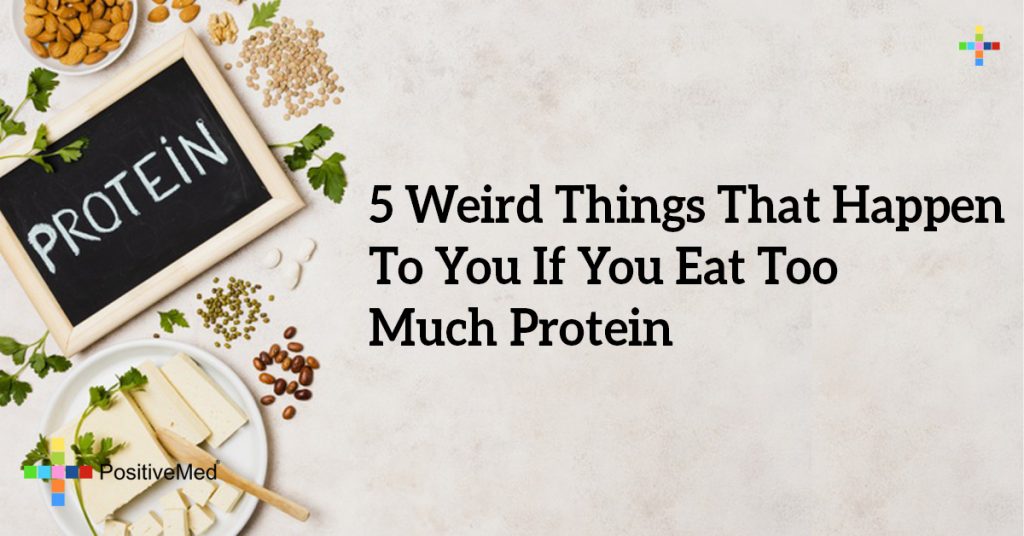
5 Weird Things That Happen To You If You Eat Too Much Protein
Protein has a very important role in living a healthy lifestyle. It is used by your body to repair and create bones, muscles, skin, hair, nails, and other tissues. When you eat protein, it keeps you full and prevents you from overeating. Most nutritionists recommend that the average, sedentary person eat between 40 to 70 grams of protein per day, and athletes who are trying to build a lot of muscles may eat 200 grams of protein each day. However, it is possible to get too much of a good thing. When you consume protein for over 30% of your calories, it can have unpleasant side effects.

Mood Changes
High protein diets that restrict carbohydrate or fat intake affect neurotransmitters that change your mood. Without enough carbohydrates, you cannot get serotonin, which promotes calmness and relaxation. Excess protein can give you excess norepinephrine, which makes it hard to go to sleep. Ultimately, too much protein in your diet makes you feel restless, tired, jittery, and grumpy.
Weight Gain
When you eat more protein than your body needs, it treats excess protein almost like empty calories. The extra protein you do not use is simply converted to sugar, which becomes fat. Though protein can be a helpful weight loss tool, eating excessive amounts just results in gaining fat.
RELATED ARTICLE: 9 Best Proteins You Need to Eat According to Nutritionists!
Heart Problems
Protein rich foods often contain quite a bit of cholesterol. Eating too much animal protein can cause buildup in the arteries of your heart, which puts you at risk for heart problems, including heart attacks and strokes.
Bad Breath
As your body breaks down excess protein, one of the byproducts of this process is ammonia. When your bloodstream contains too much ammonia for your kidneys to dispose of it may be excreted through your breath. The scent of ammonia and other products of breaking down protein can be extremely noticeable and unpleasant.
Kidney Problems
Eating excess protein causes more nitrogen waste products to build up in your blood. Your kidneys will work overtime to remove this nitrogen, which puts more strain on kidneys and harms kidney function. Your body will need to use extra water to flush out the nitrogen, which can result in dehydration.
RELATED ARTICLE: How Much Protein To Eat At Breakfast To Burn Fat and Build Muscle
Though these conditions may seem grim, there is an easy fix. All you have to do is stay within the ideal range of eating 0.8 to 1.5 grams of protein for each pound of body weight, and if you exercise more, you can be on the higher end of this range. By only eating the correct amount of protein, you can balance your nutrition and enjoy better health.





